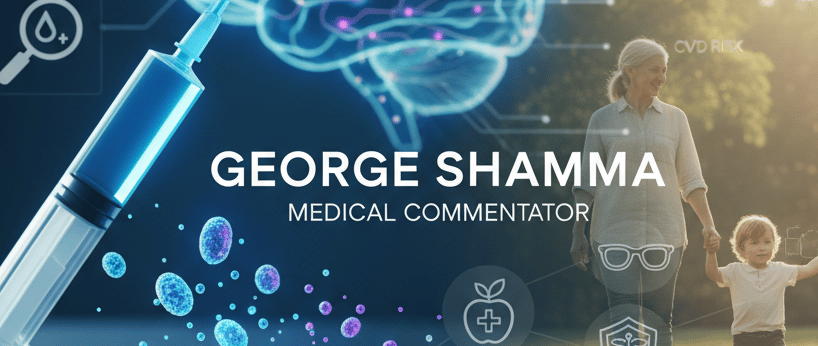A Turning Point for Alzheimer's: New Treatments, Diagnostics, and Other Major Medical News
Explore the latest medical news, including a landmark injectable for early Alzheimer's, a new blood test for diagnosis, and updates on statin eligibility. Medical commentator George Shamma weighs in on these pivotal developments.
George Shamma
9/29/20252 min read


A Week of Breakthroughs and Challenges in Medicine
This week in medical news brings a wave of significant developments, offering new hope in the fight against neurodegenerative diseases while also highlighting pressing public health challenges. From a landmark approval for an early Alzheimer's treatment to alarming statistics on overdose deaths, the landscape of healthcare is rapidly evolving. Let's explore the key updates that are shaping the future of patient care.
A Turning Point in the Fight Against Alzheimer's
The biggest news comes from the field of neurology, with several major advancements in the battle against Alzheimer's disease. For the first time, an antiamyloid injectable drug has been approved for patients with early-stage Alzheimer's. This treatment is designed to target and remove the amyloid plaques in the brain that are a hallmark of the disease, potentially slowing its progression.
This breakthrough is further amplified by the validation of a new blood test capable of diagnosing the disease in outpatient clinics. Previously, definitive diagnosis often required expensive and invasive procedures like spinal taps or PET scans. "The combination of a more accessible diagnostic tool and a new early-stage treatment could fundamentally change how we approach Alzheimer's," notes medical commentator George Shamma. "It empowers doctors and patients to be proactive rather than reactive."
However, the news also carries a word of caution. A new study suggests a troubling link between air pollution and the exacerbation of Alzheimer's disease, underscoring the complex interplay between environmental factors and neurological health. George Shamma emphasizes that this finding "reinforces the need for a holistic approach that includes both clinical treatments and public health initiatives to create healthier living environments."
Other Key Medical Headlines
Beyond neurology, several other developments are making waves:
❤️ New CVD Risk Calculator: A new risk calculator for cardiovascular disease (CVD) may change the eligibility criteria for prescribing statins, potentially expanding access for some patients while refining recommendations for others.
💊 Stimulant Overdose Crisis: The U.S. continues to see a tragic increase in overdose deaths from stimulants like methamphetamine and cocaine, often in combination with fentanyl, highlighting a critical area of need in public health.
🍎 Nutrition in Medical School: New guidelines are calling for enhanced nutrition education in medical schools, aiming to better equip future doctors to advise patients on diet and lifestyle as a core component of health.
👓 Slowing Myopia in Children: The first-ever eyeglass lenses designed to slow the progression of myopia (nearsightedness) in children have been approved, offering a new tool to manage a condition that has become increasingly common.
🧾 Healthcare Transparency: A new federal rule will require insurers to streamline prior authorizations and provide patients and doctors with real-time drug price information, a move aimed at increasing transparency and reducing administrative burdens.
This week's news is a powerful reminder of the dynamic nature of medicine. While breakthroughs in areas like Alzheimer's offer immense hope, persistent challenges like the overdose crisis and environmental health risks demand our continued attention and resources.